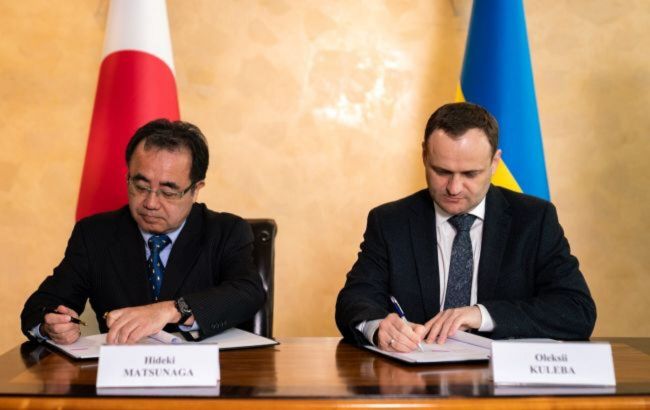Ukraine signs $58 million deal with Japan - Fund allocation details
 Photo: Oleksii Kuleba and Hideki Matsunaga (mindev.gov.ua)
Photo: Oleksii Kuleba and Hideki Matsunaga (mindev.gov.ua)
Ukraine and Japan signed a $58 million agreement on April 9 for the urgent recovery of Ukrainian territory. The funds will be directed towards demining, energy, and infrastructure, according to the Ministry for Communities and Territories Development.
On April 9, Ukraine and Japan signed a $58 million agreement for the urgent recovery of Ukrainian territory. The funds will be allocated for demining, energy, and infrastructure.
The agreement was signed by Ukraine's Minister for Communities and Territories Development, Oleksii Kubela, and the Head of the Japan International Cooperation Agency (JICA) office in Ukraine, Hideki Matsunaga. It marks the official start of the fourth phase of the Emergency Recovery Program for Ukraine.
This program, jointly implemented by the Ministry for Communities and Territories Development and JICA, has already seen the completion of three phases, which included rapid response measures in energy, transport, agriculture, healthcare, education, waste management, water drainage, water supply, and humanitarian demining. Additionally, equipment was provided to municipal institutions across cities and regions.
Minister Kubela emphasized that the new funds would ensure critical assistance in areas such as humanitarian demining, energy, water supply, and infrastructure restoration. He also highlighted Japan's substantial support, noting that since the beginning of the war, Japan has provided Ukraine with $12 billion in humanitarian and financial aid, with nearly $700 million invested in joint Ukrainian- Japanese projects.
Japan's support for Ukraine
Japan's support for Ukraine has been ongoing since the early days of Russia's full-scale invasion. Japan has condemned the aggression and joined international sanctions against Russia. It has provided financial, humanitarian, and material assistance to Ukraine, including funds for the economy, infrastructure recovery, and humanitarian needs. Japan has also supplied bulletproof vests, drones, vehicles, and demining equipment, although, due to constitutional restrictions, it cannot provide lethal weapons.
In January this year, Japan imposed additional sanctions on Russia, targeting companies and individuals not only from Russia but also from other countries. Additionally, Japan joined the coalition to bring back Ukrainian children deported by Russia, an initiative started by Ukraine and Canada.

